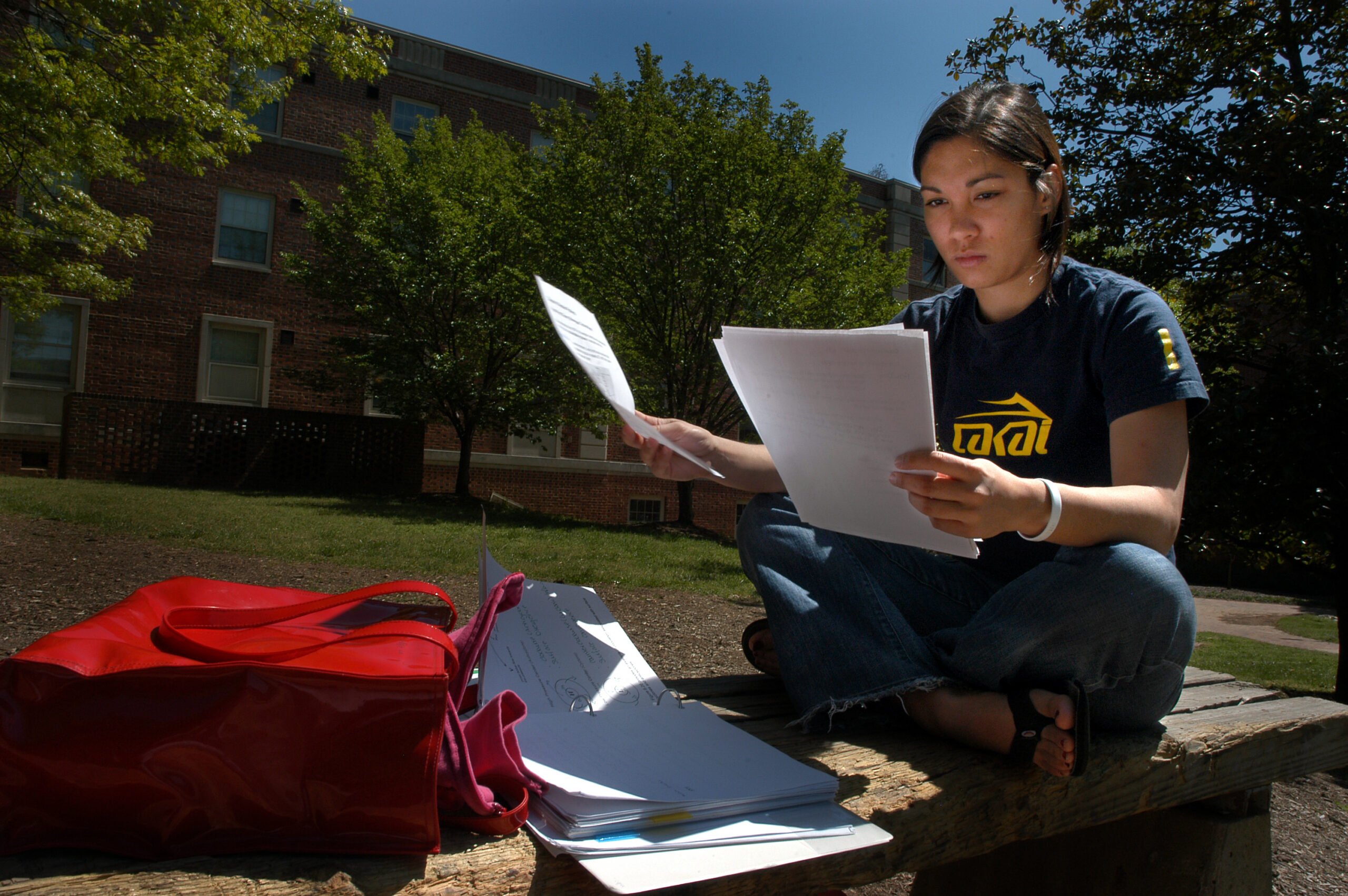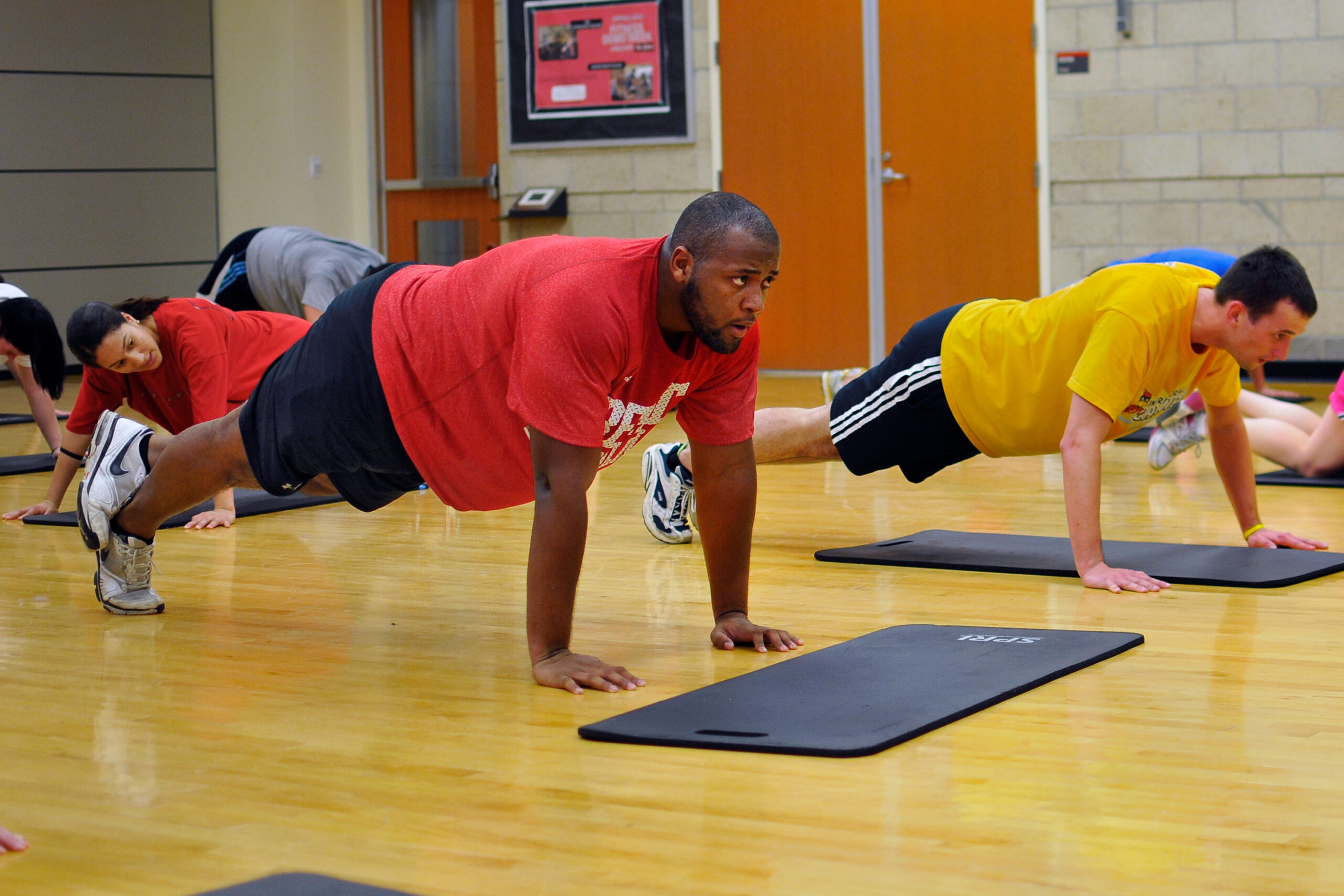Do Grades Help Us Understand?: Ungrading and “What Did I Learn?” versus “What Did I Get?”

Ungrading Background
“Ungrading,” “non-traditional grading,” “contract grading,” and “specifications grading,” are all terms stemming from a trend appearing in education during the last few decades. Since the publication of Education Secretary Ernest Boyer’s Scholarship Reconsidered in 1990, educators have argued that assigning letter grades in classes can impede student learning.
Several types of non-traditional assessment strategies, sometimes known as “ungrading” or “non-grading,” are now being used by teachers and professors to bring focus to a deeper and more meaningful acquisition of knowledge in an effort to shift focus away from traditional letter grades and promote more intrinsic motivation for learning.
Unlike traditional grading, where assignments are graded with points (e.g., 98 out of 100 points equals an A+), ungrading avoids point systems and focuses on providing useful feedback. For example, individual assignments might be evaluated using rubrics or pass/fail designations with clear criteria for success, with the aim of encouraging students to master course content as opposed to achieving high grades.
We spoke with three NC State professors who use non-traditional grading in their classrooms, and asked how they decided to use these approaches, how their strategies work, and what they want others to understand about their methods.
Ungrading Origin Stories for NC State Professors
Education professor Dr. Sarah Cannon remarks that as NC State faculty members, she and her colleagues “need to be constantly reflecting on our practices [and asking]: is what we’re doing serving the students?” Multitudes of teaching models exist today, including everything from Montessori (largely based on self-directed kinesthetic activity) to VARK, a model based on four types of learning styles. The long-popular banking model of education, in which educators treat students “as if they are empty vessels waiting to be filled with the knowledge of the teacher,” https://www.edutopia.org/blog/prior-knowledge-tapping-into-often-classroom-rebecca-alber, is quite different from the contract model, in which vessels that are already full get to make decisions for themselves about what they’re learning. “Ungrading is a misnomer,” Cannon says. Students “are still getting a [final] grade. ‘Ungrading’ is a word that turns people off and doesn’t capture the philosophy and what it’s trying to do. Extrinsic motivation [like assigning grades] doesn’t really help people learn. But our education system is built on carrots and sticks, solely in the extrinsic motivation world. Ungrading is a philosophy that is trying to remove carrots and sticks, and create systems of intrinsic motivation. But it’s tough to do because we exist in this current educational structure.”
Although Cannon might be expected to be more invested in innovative educational philosophies as an education professor, she is not the only NCSU faculty member who believes in alternative approaches to assessment. Dr. Skylar Hopkins, professor of Applied Ecology, also prefers contract grading. During her third and last post-doctoral position, Dr. Hopkins had responsibilities for a biostatistics course that involved evidence-based pedagogy, or teaching strategies emanating not from tradition but from methods demonstrated to improve student learning. Her mentor, “an outstanding educator,” encouraged her to be creative and incorporate tools like a visual syllabus, flipped classroom, and educational games. “This was a good opportunity for me to try new pedagogical approaches, but I didn’t hear the term “ungrading” until I was in a reading circle at NCSU,” Dr. Hopkins said. For years, Dr. Hopkins has used contract grading, as opposed to grading with a traditional point system. In addition, she conducts a flipped classroom, in which there is no lecturing, and the class time is entirely used for activities, subject interpretation and discussion, and educational games. Dr. Hopkins’ students do their content learning outside of class, and have a list of resources they can choose to do assignments from. Her classes also involve visual syllabi, with a variety of pictures, colors, and graphics. Hopkins, like Cannon, is a firm believer in the benefits of internal motivation for student content mastery.
Hopkins explains that “students don’t look at feedback or mistakes as much if they’re getting a point-based grade.”
Contract grading allows her to offer her students sidequests, visual and auditory learning opportunities, and assignment revisions, which puts more learning responsibility in the students’ hands. Hopkins notes that the flexibility of no assignment point grades is typically helpful for the students. Contract grading gives the students the opportunity to “prioritize their time in a way that works for them,” which also allows them to “learn soft skills at the same time.”
The alternative assessment strategies at NCSU are not limited to education and ecology classes: psychology professor Dr. Daniel Gruehn was first introduced to non-traditional grading at an NCSU faculty development reading group. He had caught numerous students in his Child Psychology class cheating, and was weary of students endlessly arguing for an extra few points on assignments. He wanted a better option, and was intrigued to discover “specifications grading.” This type of system that Gruehn adopted for his classroom is a pass/fail system in which the cheating was virtually eliminated because assignment completion is more important than accuracy. However, there are very clear specifications a student has to meet in order to pass an assignment, and also less competition for grades.
How Ungrading Works
Cannon and Hopkins use similar methods in their contract grading class format, while Gruehn’s methods are more comparable to business performance reviews, but the goal for all these professors is for their students to achieve content mastery as opposed to the highest scores. In Cannon’s classes, the contracts involve performance-based assessments, including strong rubrics aligned to standards and frequently practicing skills; these are the same rubrics and skills that would be used in traditionally graded classes. Cannon’s students “have to meet minimum requirements for all standards in order to get an ‘A.’ They can redo their assessments in order to be proficient on all of them. We’re still using a very strong and articulated rubric, but it’s more about mastery than it is a one-time snapshot of how they performed. We require extension activities for ‘A’s as well. Attendance is a component, and all make up assessments have to be turned in by specific dates.” At the end of each semester, Cannon meets for about 7 minutes with each student, and discusses their semester learning experiences. She loves this time of shared reflection.
Our students want us to see them. Taking time to meet with each student individually allows each to be seen. Some have said they didn’t want to be teachers anymore. Some have had tears in their eyes. Kids are brilliant and funny and have creative ideas and want to change the world.
Cannon strives to encourage her students and listen to their assessment of their own performance in her class and whether or not they feel they have earned the final grade that they contracted for at the beginning of the semester. A major factor of the grading process for Cannon involves the “kind of person I want to be. Part of it is me having integrity.”
Dr. Hopkins relates a similar format with her contract grading classes. She notes that revisions are an enormous part of content mastery, and that multiple revisions can assist students with correctness as well as deter the instructor from being more subjective. She allows her students to revise quizzes indefinitely, and they have a choice of doing several types of “side quests” if they wish. Some quests are more traditional, and others more creative. One of Hopkins’ most memorable side quests is a scientific poem that her students have the option to write. Some of those poems are “really deep and poignant, or really silly poems,” but the assessment is primarily about the content rather than the form.
Hopkins’ classes have a pre-reflection at the beginning and a post-reflection at the end with questions such as: “What level of assessment contract do you want? What might be most challenging for you this semester? What do you want to learn this semester, and what did you learn? Did you satisfy your contract, and if not, why?” Hopkins welcomes student observations, and encourages students to also give it prior to the end of the semester. Additionally, she gives her students the data and evidence behind ungrading on the first day of class, because she recognizes that it can be an adjustment for students and wants them to trust that the unconventional format will work. She says that her students often have a very positive experience with the format.
Hopkins says, “I don’t think I could ever go back to traditional grading,” because her students constantly remark how much less stressful the contract grading class format is.
With Dr. Gruehn’s specifications grading, the process is somewhat different. Final grades are determined by the number and type of assignments completed, which is connected to subject mastery rather than points. A passing grade on an assignment denotes mastery of a particular level of content. In Gruehn’s specifications classroom, students have myriad options and control over what they can choose to work on in terms of quizzes, essay topics, etc. These students are more in charge of how they want to structure their own education than they would be in a classroom with traditional grading. All their assignments have deadlines, but all are open for submissions from the beginning of the semester onward, so students are able to start on their work early and work at any pace they prefer within the deadlines. As with contract grading, though, specifications grading also involves the vital revision component in achieving subject mastery, so to facilitate this, Gruehn distributes two tokens per student at the beginning of the semester that allow for an assignment redo or extension.
Ungrading Misconceptions
But would a grading structure based more on completion than points be more likely to attract students who only want to put in the bare minimum of effort? Wouldn’t contract or specifications grading be so much more subjective than traditional grading because the students are choosing their own grades? It can be easy to think that if students are allowed to argue for their own final grades, then they will all evaluate themselves highly. But this was not Dr. Cannon’s experience. She said that many students undersold themselves, especially the women. Several assigned themselves a lower grade than they deserved, because they didn’t meet their own expectations as thoroughly as they wanted to. With those students, Cannon points them back to the criteria and asks them if they have fulfilled each requirement in the chosen contract level. She explains that ungrading is “not a nebulous and frou-frou approach to assessment” in her education classes. Since both North Carolina teacher licensure and university accreditation standards are applied to Cannon’s education classes, she has a cross-department committee, including K-12 partners, that evaluates class rubrics, so her contract assessments incorporate stringent checks and balances. Additionally, a graduate student analyzes the class assessment data at the end of each school year.
Some of Dr. Gruehn’s students actually complain that fulfilling the specifications for an “A” grade in his classes is “too much work.” But, Gruehn says, “That’s kind of the point. There is probably more work involved for an “A” here than there is in normal point-based grading.”
He explains, “The emphasis is shifted in the specifications grading structure so that students are in control. This is probably more objective, because it has a fixed criteria the students have to reach.”
With non-tradiional grading, students are typically able to choose exactly which grade they wish to achieve, and know precisely what they have to do to obtain that grade.
Providing Feedback and Practicality
But is enough feedback provided for contract or specifications grading to allow the student to achieve content mastery? Does ungrading work better with some classes or fields of study than others? In Gruehn’s classes, students receive feedback on essays or assignments, but not quizzes, and feedback is separated from grading. Grading can be done very quickly, but feedback takes more time. Gruehn’s feedback is more similar to an industry performance review than it is to traditional grading, so in a significant way, it is actually more “real world” than traditional grading is. When asked if non-traditional grading might be better suited to some subjects as opposed to others, Gruehn postulated that types of non-traditional grading might be easier with math, or another field of study with many different small assignments. Hopkins invested many hours into Moodle and discovered a streamlined way to get the platform to accommodate alternative grading, and says that she would be happy to share it with others. She works hard to ensure that her students are committed to revisions of their work in order to achieve mastery. “A lot of learning is about the process more than about the final answer,” she says. “Students can learn from their mistakes. It’s not a question of ‘Was your first attempt right or wrong?’ You have to be creative and think about what works for your class.”
Conclusion
What works for classes and students seems to have shifted somewhat since 2020. Dr. Cannon realized during the pandemic that her students were caught in the midst of a global mental health crisis, and that many of them seemed extremely stressed. She believed that removing the pressure of achieving high grades from her students could relieve some of that burden. But is ungrading a good idea for all students? The three professors mentioned that time management was sometimes an issue for their students due to the freedom that non-traditional assignment grading allows and with more control over the pace of their work, so ungrading does seem to work better for the more structured or more adaptable students. Cannon states that “no intervention works for everyone,” but that her students who are self-starters have tended to adjust well to contract assessment. Students’ brains, motivations, background knowledge, and environments are different, so creating differentiated instruction is always challenging. For many of Cannon’s education students, the idea of contract grading was unfamiliar initially, and they needed time to adjust to a unique assessment model. Many did very well with ungrading, and thought it allowed them to really focus on what they were learning instead of their grades, but some wanted hard deadlines, traditional tests, and regurgitation of information.
Cannon does not insist that her subject is the most important one in the university, and says that “ideally, [her students] will contract for whatever grade they have capacity for that semester,” not the highest grade they are capable of achieving. Cannon asserts that “as an educational system, I don’t think we treat people as whole human beings. Is ungrading going to change that? No. But if there’s something that’s in my locus of control, I’m going to try to fix it. The entire education system is outside my locus of control, but how I interact with my students, and how I treat them, is within my locus of control, and I hope that reverberates outward. Education students don’t have to do contract grading in their own [future] classrooms. But they do need to know how they are critically thinking about the decisions they’re making, whether they’re designing lesson plans or units or a syllabus or class structure.” Canon also mentions the impossibility of transforming university education courses into pass/fail classes–this cannot be done due to the state teacher licensure requirements. Nevertheless, she seeks to effect change in the education system via her education classes. As a teacher educator, her philosophy is that she is preparing and equipping teacher candidates for the educational system that currently exists, but also giving them knowledge, tools, and experience to effect change. She says, “Our main job is to prepare educators to enter a profession with systems and structures already in place, but with the imagination to see what could better the lives of their students. Ungrading is part of that. These new teachers are going to be in a school system that requires them to give A, B, C, D, and F grades, but we want them to explore how they can be innovative and more equitable within that system.”
Dr. Cannon says, “Ungrading doesn’t mean un-expectationing.” With non-traditional grading, “We can still have high expectations for our students and encourage them to be critical thinkers and problem-solvers, but do it in a way in which their value is more than a letter grade.”
Dr. Gruehn remarks that the non-traditional grading completion emphasis is a great example of NC State’s concept of “think and do,” or “do or not do.”
- Categories:


